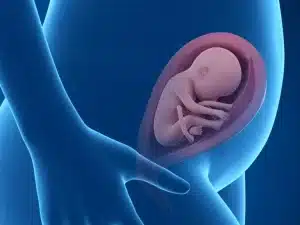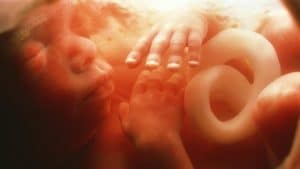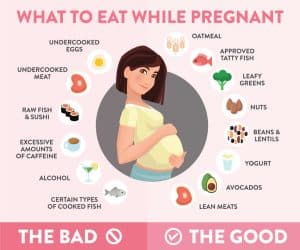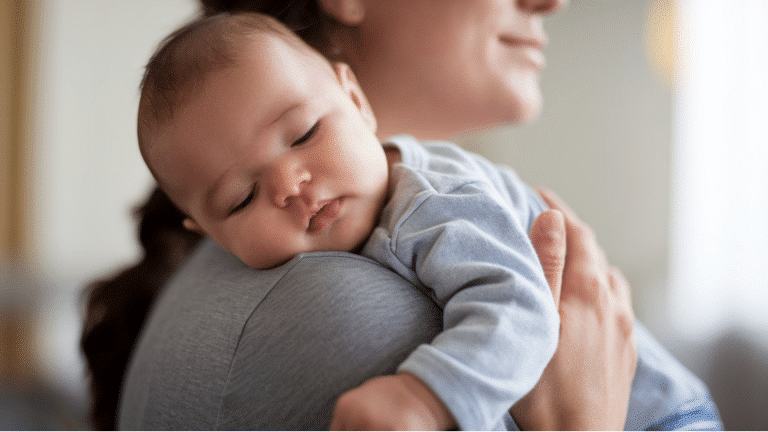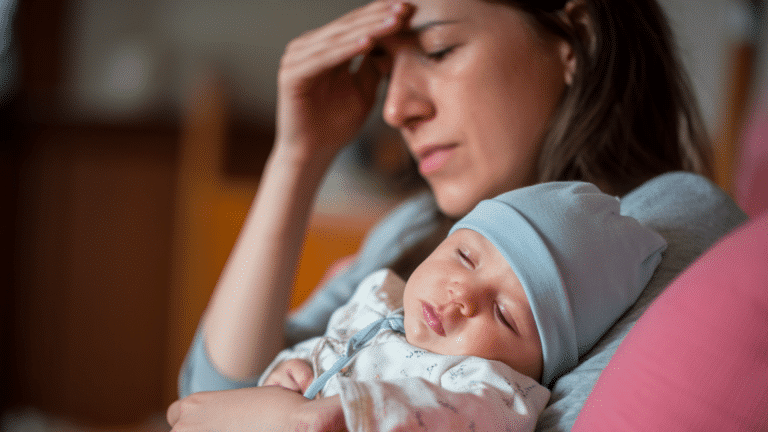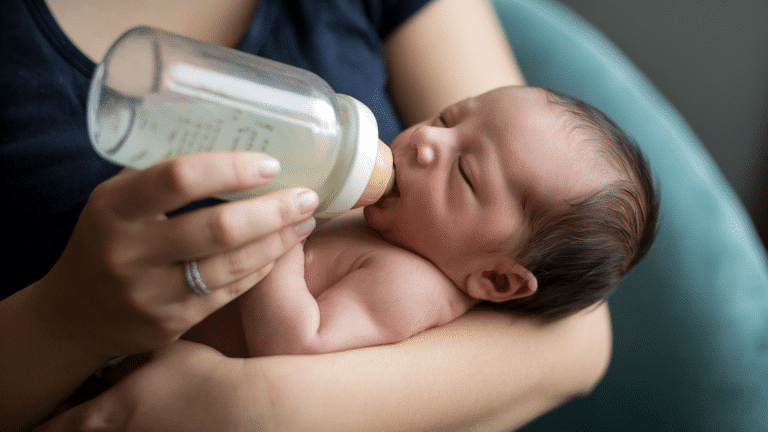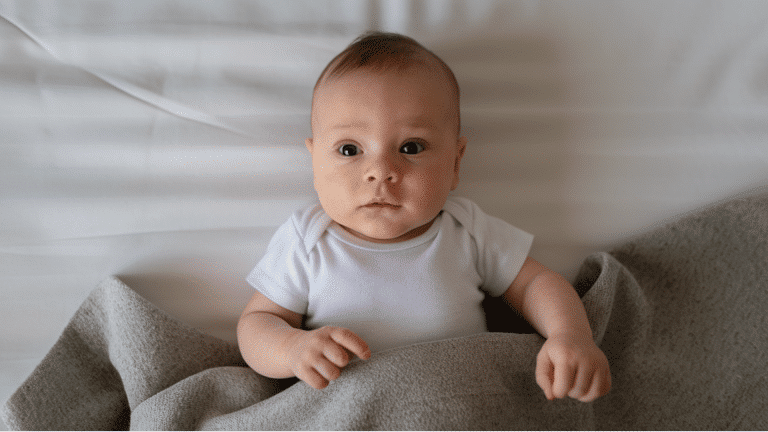It’s not absurd for you to ask this question: How do babies breathe in the womb? The baby stays in the womb for nine months, and it is completely filled with amniotic fluid. The baby gets all the nutrients necessary for growth.
The oxygen reaches the womb through the placenta. However, the babies in the womb don’t breathe the way that we do it.e., through mouth and nose. This is where the umbilical cord comes into play, which is connected to the placenta itself. So you can say, in a way, that babies don’t take their real first breath until they are born.
Isn’t it surprising? That the baby receives all the nutrients it needs for nine months without even drawing their first true breath. How does that all happen?
Let’s find out!
How Do Babies Breathe in The Womb?
Broadly, we already know that the umbilical cord, which is connected to the placenta, plays a major role in babies breathing in the womb. The placenta is an organ that is not normally present in a woman’s body unless you are pregnant.
The placenta takes oxygen molecules from the mother and passes them into the womb. The baby continues to breathe with the help of the placenta until the umbilical cord is cut after the delivery. That’s why the cutting of the umbilical cord is a major event in the baby being born. Since that will be the first time the baby will breathe on its own. Generally, babies draw their first breath within 10 seconds of exiting the birth canal.
When Does a Baby Start Breathing in The Womb?
It all happens when the placenta is developed to nurture the baby with all the necessary nutrients. Once the umbilical cord, which is attached to the placenta, connects with the baby, your baby will start getting the oxygen molecules from the mother. This happens around 12 weeks after the gestation period.
However, movements are seen as early as 11 weeks in the womb, and doctors have termed it as ‘practice breaths.’ This is where the lungs of the baby get filled with amniotic fluid as they practice these breaths. This is also known as fetal breathing movements.
These breaths happen with the help of muscle contractions, which prepare your baby to breathe in the outside world.
How Do Babies Breathe During the Birth?
Every parent wants the kid to be born without any health issues and complications, and they long wait for the moment that their baby can breathe on their own. However, some concerns need to be talked about.
We know that the baby continues to receive oxygen through the placenta when it’s inside the womb and even when the baby is passing through the birth canal at the time of delivery. The connected umbilical cord transmits all the essential nutrients from the placenta to the baby. Even during the time of delivery, the baby continues to receive nutrients and oxygen until the cord is cut.
However, sometimes, the umbilical cord gets wrapped around the baby, which is a common worry among parents. The cord can also wrap around the baby’s neck. Let us tell you that it’s not a cause of worry unless the cord is tightly wrapped around the baby’s neck because it might constrict the breathing of the baby. In at least 37% of the cases, the umbilical cord is found wrapped around the baby’s neck, and it’s considered normal.
When Does a Baby Take Their First Breath?
The baby takes their first breath into this world within 10 seconds of exiting the birth canal. More than a breath, it sounds like a gasp because of the change in environment and sudden exposure to air.
The lungs of the baby, which are filled with amniotic fluid inside the womb, are filled with a gush of air when the baby breathes on its own. The lungs quickly initiate to drain the amniotic fluid in the lungs. The newborn baby is still receiving all the nutrients from the mother as long as the baby is attached to the placenta through the umbilical cord. This is the reason why most parents nowadays are advocating delayed cord clamping by up to 25 seconds and 5 minutes. Some studies have concluded that delayed cord clamping enhances the oxygen saturation rate and a lower heart rate.
Can a Baby Breathe During a Water Birth?
The aim of the water birth is simply to smoothen the transition from the womb to the real world. In water birth, the baby is immediately put into a tub of warm water after the delivery. So rather than being exposed to the outside weather, the baby has ensured a smooth transition from the womb to the real world.
Water birth is an unlikely option for healthy babies. If you’re having a water birth in the near course of time, don’t be stressed. Moms who are having water birth keep their bottom half submerged in water as it reduces the risk of the baby being exposed to the air prematurely.
How Does the Baby Breathing Change After the Birth?
If you are a first-time parent, it’s understandable that you might be worried about your baby breathing outside of the safe environment that you provided in the womb. Each and every cough and irregularity in breathing tends to cause a lot of worry among parents. Baby takes time to adjust to the outside environment as well as breathing through their lungs. Baby lungs are filled with mucus, which gets cleared in the due time.
For this reason, you may hear a few grunting sounds, labored breathing, etc., as the lungs of the baby are trying to clear themselves.
The newborn baby breathes through their nose, which allows them to breathe and nurse from the mouth at the same time. Moreover, some experts believe that the type of labor you have decides how much mucus your baby has. If it’s a quick delivery, like a c-section or rapid labor, the baby typically has more mucus in their lungs. However, if the labor is taking its due time, and the delivery is through the birth canal, then most of the mucus in the baby’s lungs will be squeezed out, and there will be less mucus in the lungs of the baby.
What to Avoid During Pregnancy?
Did you know that most premature births happen because the baby’s lungs cannot mature, leading to Pneumonia and respiratory distress? One way to avoid premature birth of the baby is to watch what you eat, your daily activities, and other lifestyle choices that you make.
There are some foods that you should avoid, like uncooked eggs, raw meat, sushi, and deli meat. Because these foods contain harmful bacteria and can harm the baby, you should also restrict your caffeine and completely avoid alcohol in any form.
Moreover, if you are unsure about any food or medicine, please ask your doctor first before making a decision for yourself.
Final Thoughts
Being a parent is one of the greatest joys in the world, and holding your baby in your hand for the first time is an experience that cannot be put into words, no matter how hard we try.
But to reach that stage, there are 9 months of monitoring that, as a newborn parent, you need to take care of. Baby breathing healthily is a core health parameter that all babies need to have for their optimal health. As a responsible parent, it’s your responsibility to know the basics of how babies breathe in the womb.
We hope this blog provided you with enough information to fare through your pregnancy with ease. Happy parenting.
Frequently Asked Questions
What if The Baby Does Not Get Enough Oxygen?
If the womb’s oxygen supply gets hampered and the baby suffers from oxygen deprivation. Then, there is a very high risk of permanent damage to the baby. This damage can occur in the lungs, brain, and heart and can even lead to certain mental disorders such as cerebral palsy.
Do Babies Breathe with Lungs in The Womb?
The short answer is no. Babies in the womb don’t breathe the same way as we do in the real world. The womb is dependent on the mother to get adequate oxygen for developing the various organs. This all happens through the umbilical cord, which is the main source of all essential nutrients delivered to your baby. After 9 months or at the time of delivery, the womb goes through a hard transition where the baby breathes from their lungs.


